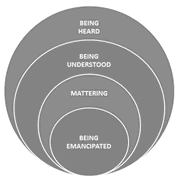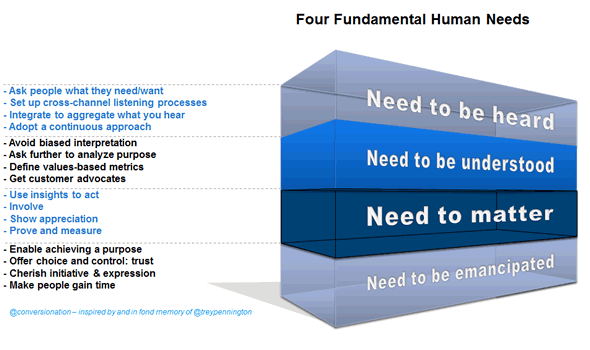 No conversions without people-centricity. No new customers without prospects actually doing what we hope they do. No matter how advanced our marketing automation scenarios, email marketing campaigns, landing page A/B testing systems, lead nurturing programs: if conversions don’t happen, they simply don’t…happen.
No conversions without people-centricity. No new customers without prospects actually doing what we hope they do. No matter how advanced our marketing automation scenarios, email marketing campaigns, landing page A/B testing systems, lead nurturing programs: if conversions don’t happen, they simply don’t…happen.
Where we used to be happy with the word customer-centricity, we now talk about people-centricity. Maybe you hate the term but I like it: people, not prospects, subscribers and whatnot.
And when you talk about people, you talk about emotions, persuasion and influence, split-second decisions and the mighty psyche. The psyche that always tries to explain emotional decisions with a posteriori rationality.
Persuasion, persuasive copy, persuasion architecture, human motivations, Cialdini and influence, the key to the human mind in order to drive conversions; they keep obsessing us. And they should: what would we do without conversions? So, it’s not a surprise we’re obsessed by conversions as well, although I have to say I was surprised to see the success – according to our humble standards – of an old blog post we repurposed – as it’s called these days – on 8 landing page mistakes for content marketers.

And the reason for that success was the people-centric approach or – as a nice person sharing it – called it “the humanistic approach”, one the essential principles of customer-centric and even social business as far as I’m concerned.
The folks at Pardot, the B2B marketing automation brand of ExactTarget – or should I say Salesforce.com – published an eBook on using ‘simple’ psychology to increase conversions. And as it often happens in these days of social and visual content marketing, it came with an infographic.
Some of the ‘common’ psychological triggers driving conversions according to that infographic:
- Social proof.
- The fear of loss.
- The desire to connect/belong.
- Authority.
I bet that you probably know more psychological conversion triggers and ‘human needs’ but below is the infographic and here is the link to the eBook.
Want more? Check out another infographic and blog post by Eugene Farber, covering it.

Embedded from Pardot
This article was posted on i-SCOOP’s Social Email Marketing blog and has been moved as part of an integration of all our blogs.

